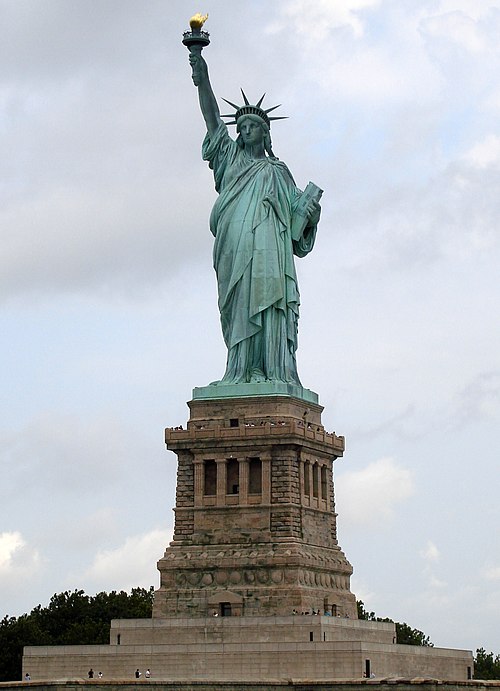Patinanoun
(originally) A paten, flat type of dish
Patinanoun
The colour or incrustation which age and wear give to (mainly metallic) objects; especially, the green rust which covers works of art such as ancient bronzes, coins and medals.
Patinanoun
A green colour, tinted with grey, like that of bronze patina.
Patinanoun
(figurative) A gloss or superficial layer.
Patinaadjective
Of a green colour, tinted with grey, like that of bronze patina.
Patinanoun
A dish or plate of metal or earthenware; a patella.
Patinanoun
The color or incrustation which age gives to works of art; especially, the green rust which covers ancient bronzes, coins, and medals.
Patinanoun
a fine coating of oxide on the surface of a metal
Patina
Patina (or ) is a thin layer that variously forms on the surface of copper, brass, bronze and similar metals (tarnish produced by oxidation or other chemical processes), or certain stones, and wooden furniture (sheen produced by age, wear, and polishing), or any similar acquired change of a surface through age and exposure. Additionally, the term is used to describe the aging of high-quality leather.
Verdigrisnoun
A blue-green patina or rust that forms on copper-containing metals.
Verdigrisnoun
Copper acetate.
Verdigrisnoun
The colour of this patina or material.
Verdigrisverb
To cover, or coat, with verdigris.
Verdigrisnoun
A green poisonous substance used as a pigment and drug, obtained by the action of acetic acid on copper, and consisting essentially of a complex mixture of several basic copper acetates.
Verdigrisnoun
The green rust formed on copper.
Verdigrisverb
To cover, or coat, with verdigris.
Verdigrisnoun
a blue or green powder used as a paint pigment
Verdigrisnoun
a green patina that forms on copper or brass or bronze that has been exposed to the air or water for long periods of time
Verdigrisverb
color verdigris
Verdigris
Verdigris is the common name for a green pigment obtained through the application of acetic acid to copper plates or the natural patina formed when copper, brass or bronze is weathered and exposed to air or seawater over time. It is usually a basic copper carbonate (Cu2CO3(OH)2), but near the sea is a basic copper chloride (Cu2(OH)3Cl).














